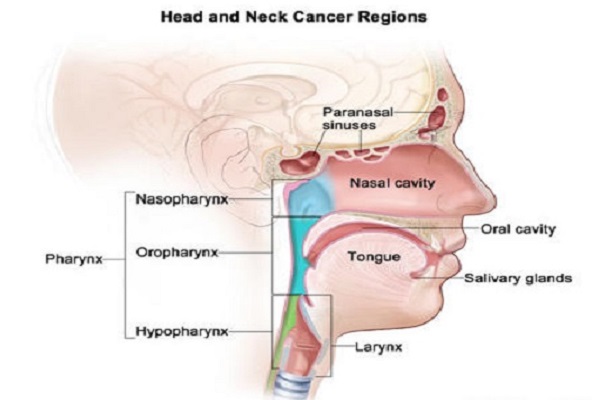2019-10-23 06:34:50
The signs of nasopharyngeal cancer (throat cancer) are often vague so are easily overlooked. You might be more at risk for developing throat cancer if you chew or smoke tobacco, indulge in excessive alcohol use, have a sexually transmitted disease such as a virus called human papillomavirus (HPV), a diet lacking in fruits and vegetables, are over the age of 65, and gastroesophageal reflux disease. However, even if you do not have these risk factors, it’s important to know you can still develop this mutation in throat cells due to unknown causes. For this reason, you should know these six warning signs of throat cancer.
There are a wide variety of cancers to watch out for, but one less discussed cancer is throat cancer. When people refer to throat cancer, they mean cancer found in your throat (pharynx), voice box (larynx) or tonsils. The most common throat cancer findings in the US are cancer of the pharynx and larynx. As with any type of cancer, it’s best to catch it before it progresses into a later stage and spreads to other parts of the body.

Early Serious Signs of Throat Cancer
1. Unexplained changes in your voice
If you notice unexplained changes in your voice, such as hoarseness or not speaking clearly, this could be a sign of a throat cancer development. This could be due to how the cancer affects your larynx.
2. Difficulty swallowing
Another sign that you may be developing throat cancer is if you have difficulty swallowing, also known as dysphagia. For evaluating your swallowing ability, your doctor may suggest a barium swallow test where you’ll drink a thick liquid to coat your throat and esophagus for images of your swallowing.
3. Sore throat, cough, or earache that won’t go away
If you have a persistent sore throat, cough, or earache, this could all stem from the complications that ensue from throat cancer. You may feel the need to clear your throat persistently.
4. Swollen lymph nodes
If you feel swollen lymph nodes in your neck, this could be another symptom of throat cancer. Testing through a biopsy can confirm a malignant or benign growth, if any, as swollen lymph nodes may also develop as a result of many other complications. They may also be larger due to a reaction to the cell mutation growth.
5. Neck lump
A more obvious sign pointing to cancerous developments in the throat is a neck lump, as this suggests an abnormal growth. As with lymph nodes, testing can be done to effectively confirm a diagnosis.
6. Unexplained weight loss
Unexplained weight loss is unusual and not always something to celebrate. This is often a sign that there is something wrong with the body, and this can include throat cancer, especially if complications like swallowing make it difficult to eat.
Getting a diagnosis
There are many reasons your body changes and experiences discomfort, so any of these symptoms does not readily confirm a throat cancer diagnosis. After a doctor performs tests such as imaging scans and a biopsy and confirms throat cancer, there are many effective treatments to get healthy. Surgery to remove growths, radiation, chemotherapy, and targeted therapy drugs are common treatments to rid the body of throat cancer. For preventive measurements, it’s important to maintain daily exercise, generally eat a well-balanced diet, and to visit your doctor regularly for checkups.

Persons who should consider attending one of the screenings are those with these risk factors:
- Smoke
- Chew tobacco
- Drink alcohol
- Prior history of cancer in the head or neck region
- Multiple sexual partners
Signs and symptoms of cancer include:
- A mouth sore that isn’t healing
- Sore throat
- Difficulty swallowing
- A change in voice
- A painless lump in the neck
For appointment or screening service consultation, please contact:
- Ms. Võ Thị Mỹ Liên: (8428) 6280 3333, ext. 8424
- Ms. Nguyễn Thị Lệ: (8428) 6280 3333, ext. 8402
For any further information about medical services provided by City International Hospital, please contact:
- Operator: (8428) 6280 3333, ext. 0
- Address: Level 3, No. 3, 17A Street, Binh Tri Dong B Ward, Binh Tan Dist. (Next to AEON Mall Binh Tan). Ho Chi Minh City.
- Website: https://cih.com.vn/en/
- FB page: https://www.facebook.com/BenhVienQuocTeCity










